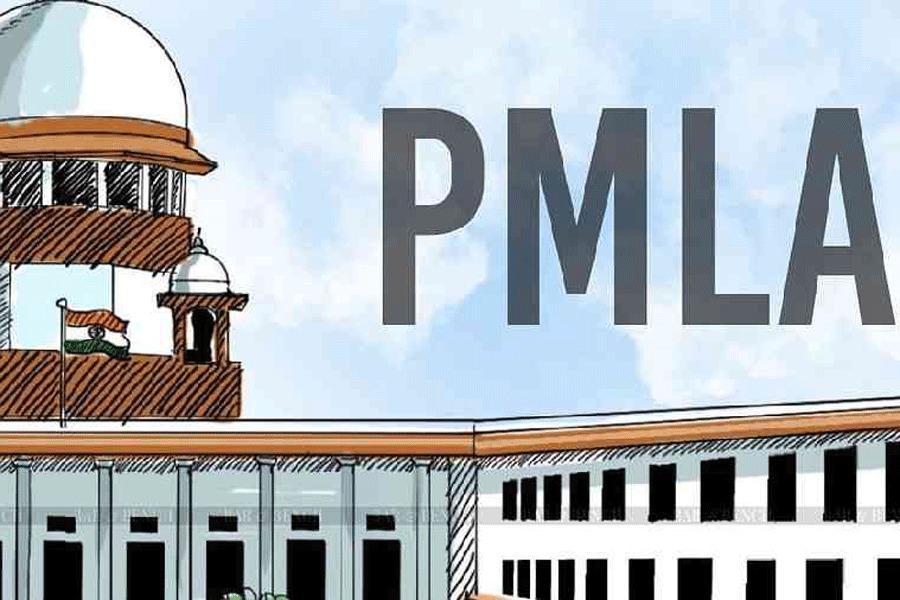
Delhi High Court Upholds ED’s Expansive Search Powers Under PMLA: Non-Accused Premises Can Be Raided
Court Says Section 17 Allows Searches Beyond Named Accused, Covers Anyone Holding Proceeds of Crime
Judgment Reinforces ED’s Investigative Authority, Balances Individual Rights with Anti-Money Laundering Goals
By Our Legal Correspondent
New Delhi: November 23, 2025:
In a significant ruling, the Delhi High Court has clarified the scope of the Enforcement Directorate’s (ED) search powers under the Prevention of Money Laundering Act (PMLA), 2002. The Court held that the ED could conduct searches not only at the premises of persons formally accused of money laundering but also at the premises of any individual in possession of proceeds of crime or related records, even if they are not named in the prosecution complaint.
Also Read: Allahabad High Court Upholds AO’s Decision: ₹122.31 Lakh Cash Deposits Treated as Business Sales
This judgment, delivered by a division bench of Justice Vivek Chaudhary and Justice Manoj Jain, strengthens the ED’s authority in investigating complex money laundering cases while raising important questions about privacy and property rights.
Background of the Case
The ruling came in appeals challenging ED searches carried out under Section 17 of the PMLA. Petitioners argued that searches should be restricted to persons named in complaints or reports filed before magistrates. They contended that extending search powers to non-accused individuals would violate constitutional protections and lead to misuse.
The ED countered that money laundering often involves multiple layers of transactions, with proceeds of crime passing through third parties who may not be directly accused. Restricting searches only to named accused would cripple investigations and allow offenders to shield assets through proxies.
Court’s Observations
- Section 17 scope: The Court held that Section 17 does not restrict searches to accused persons. It covers “any person” in possession of proceeds of crime, records, or property linked to money laundering.
- No requirement of prior complaint against same person: The Court clarified that while a prior complaint or report is a precondition for search, it need not be against the same individual whose premises are searched.
- Possession without intent: A person may be in possession of proceeds of crime without criminal intent, but searches are still valid to trace assets.
- Balancing rights: The Court acknowledged concerns about privacy but emphasized that statutory safeguards, such as recording “reasons to believe,” must be strictly followed to prevent misuse.
Broader Context: ED’s Powers Under PMLA
Also Read: Supreme Court Puts Chartered Accountants on Par with Advocates for ITAT Appointments
Also Read: Delhi High Court: Senior Citizens Can Seek Eviction Without Proving Ill-Treatment Under 2007 Act
The ruling comes amid growing debate over the ED’s expansive powers under PMLA. Critics argue that the agency has been given sweeping authority to conduct searches, seizures, and arrests, sometimes without adequate judicial oversight.
Recent cases highlight this tension:
- In November 2025, the Delhi High Court also ruled that the ED cannot freeze property or bank accounts on mere suspicion and must demonstrate valid “reasons to believe” supported by evidence.
- In other rulings, courts have emphasized that while ED’s powers are broad, they must be exercised with transparency and accountability.
Also Read: ED Attaches ₹108 Crore Gurugram Property of Vatika in Builder-Investor Fraud Case
The latest judgment reinforces the ED’s authority but also underscores the need for strict adherence to procedural safeguards.
Implications of the Ruling
- Expanded investigative reach: The ED can now target premises of third parties, including relatives, associates, or business partners, if they hold proceeds of crime.
- Deterrent effect: Money launderers may find it harder to shield assets through proxies or benami arrangements.
- Privacy concerns: Individuals not accused of any crime may still face searches, raising questions about constitutional protections under Article 21 and Article 300A.
- Judicial oversight: Courts may see more challenges to ED actions, testing the balance between investigative powers and individual rights.
Expert Opinions
- Supporters of the ruling argue that money laundering is a complex crime requiring broad powers to trace assets across multiple hands. They believe the judgment strengthens India’s fight against financial crimes.
- Critics warn that the ruling could lead to harassment of innocent individuals, especially in politically sensitive cases. They stress the need for robust safeguards and judicial review.
- Policy analysts note that the judgment aligns with global practices, where anti-money laundering agencies often have powers to investigate third parties holding illicit assets.
Conclusion
The Delhi High Court’s ruling on ED’s search powers under PMLA marks a significant development in India’s anti-money laundering framework. By clarifying that searches can extend to premises of non-accused persons, the Court has expanded the ED’s reach while reiterating the importance of statutory safeguards.
For the ED, the judgment is a boost to its investigative authority. For citizens, it is a reminder that possession of illicit assets, even without intent, can invite scrutiny. As India continues to strengthen its financial crime enforcement, this ruling will shape the balance between state power and individual rights in the years to come.
Also Read: Bombay High Court: Court Time Is Not Private Property; False Pleas Will Attract Heavy Costs
Also Read: Hindu Undivided Family: Tax Benefits, Structure, and Compliance Under Income Tax Act, 1961
Also Read: Capital Gains Account Scheme Updated: New Rules Bring Relief for Taxpayers
Also Read: Supreme Court Slams Income Tax Department for Delay in Filing SLPs
Also Read: Supreme Court Sends Officer’s Choice vs Original Choice Trademark Battle to Mediation